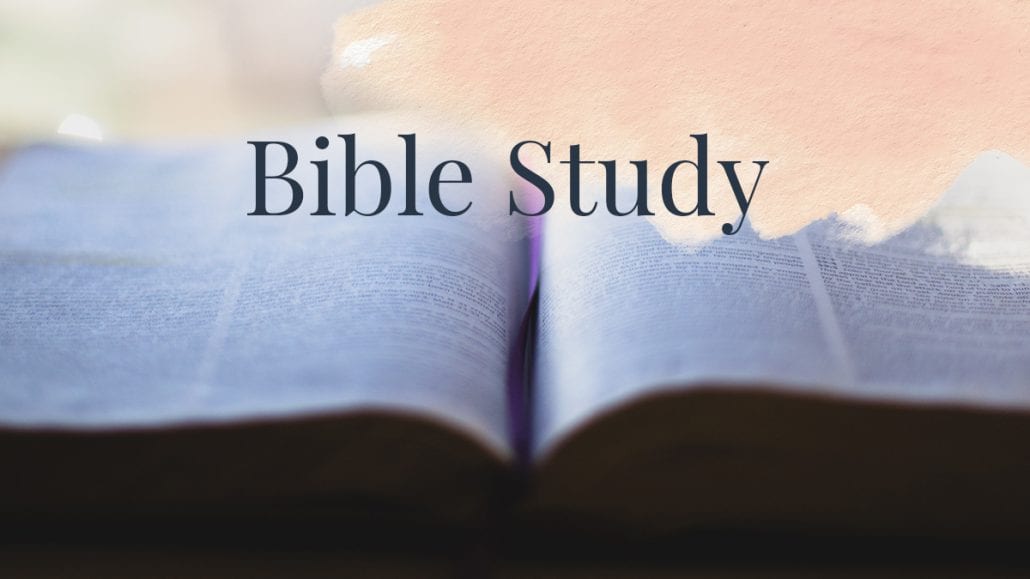“In everything give thanks”
Study 1: What to give thanks for
Psalm 136 is a call to give thanks to the LORD, the God of heaven who is greater than all ‘gods’ and ‘lords’, for he is good, for his steadfast love endures forever. Verse 1 of this psalm is often used as a prayer of thanks after mealtime.
Most of the psalm spells out how the Lord has demonstrated his steadfast love.
Read verses 4-9 that describe the Lord’s work of creation. Do you find it easy to take for granted the heavens, the earth, sun, moon and stars? Or do these created things fill you with wonder and with thankfulness to the One who made them?
Read verses 10-22 that tell how God saved his people Israel and brought them to the promised land. In doing so he overthrew great kings. “Pharaoh and his host” (v15) had wanted to keep the Israelites as slaves in Egypt. The Lord drowned them in the Sea of Reeds. Sihon, king of the Amorites (v19) had refused permission for the Israelites to pass through his territory on their way to the promised land. Og king of Bashan (v20) was next in challenging the advancing Israelites. When Sihon and Og led their armies into battle against Israel they were defeated, and all their territory was taken from them (Numbers 21:21-32).
Do these events from the early history of Israel mean anything for us? For what act of deliverance might you give thanks to God as you pray these verses?
Read verses 23,24. The Lord didn’t deliver Israel from their foes because they were powerful. He took pity on their “low estate”. It’s his glory to save the lowly. Compare Deuteronomy 7:7,8; 1 Samuel 2:7,8; Psalm 113:7,8; Luke 1:52-55; 14:11; 18:14.
While the Lord remembers and delivers his chosen people, he cares for all. He “gives food to all flesh” (v25). See also Matthew 5:45; Acts 14:16,17. Out of love for all people he sent his Son to die for the sin of all. He desires all people to be saved and to come to the knowledge of the truth (1 Timothy 2:4).
Throughout his ministry, our Lord Jesus showed that he is God come to save all people. God, who revealed himself in the days of the Old Testament to Israel as LORD (YHVH in Hebrew), has further revealed himself in the New Testament as Father, Son and Holy Spirit.
Read Luke 17:11-19, which tells how Jesus extended his healing power also to a Samaritan man. The nine went to the priests at the temple to be declared clean, offer the prescribed sacrifices and be anointed with blood and oil. Jesus sent them there in keeping with Leviticus 14. The Samaritan did something even better. He glorified God by returning to Jesus to give him thanks. (Verses 15,16 say literally, Then one of them, when he saw that he was healed, turned back, glorifying God with a loud voice; and he fell on his face at his feet, giving him thanks.) By thanking Jesus, the Samaritan confessed that God, who was present at the temple, was present in Jesus. Elsewhere in the New Testament scriptures, prayers of thanks are given to God the Father. This is the only place where a prayer of thanks is addressed to Jesus, by, of all people, a foreigner!
The sacrifices that were offered at the temple were fulfilled and replaced by the sacrifice our Lord Jesus offered when he was crucified – the sacrifice of himself for the sin of the world. He took pity on our low estate by making himself lowly, so that he might raise us up to new life in the presence of God. In the meantime, he calls us to follow him on the way of the cross. It was while Jesus was journeying to Jerusalem (v11) and the cross that he was met by the ten lepers. He invited the Samaritan to join him on that journey. English translations might obscure the connection, but in the Greek text the same verb is used in verse 19 as in verse 11: Arise; journey. Your faith has saved you.
Can we go on that journey of the cross with thankfulness to Jesus?
In the Divine Service we pray the song of the angels who rejoiced when Jesus was born humbly: “Glory to God in the highest, and on earth peace …” We go on, “We give thanks to you for your great glory”. Didn’t the people of Israel shake in their boots when the Lord revealed his glory at Mt Sinai (Exodus 20:18-21)? Weren’t the shepherds who were keeping watch over their flock by night, terrified when the glory of the Lord shone around them (Luke 2:9)?
How is it possible for us to thank God for his glory? (See, for example, Philippians 2:5-11)
Heaven, in fact, will resound with songs of thankfulness to God (Revelation 11:16,17; ‘saying’, v17, is a liturgical word that means ‘singing’, 5:9; 15:3). The angels will be singing thanks to God for the great multitude of people who will be standing before the throne of God and the Lamb, victorious and dressed in white. (See Revelation 7:11,12.) That great international multitude who have been saved, washed clean by the blood of the Lamb and made participants in God’s glory will cry out with a loud voice, Salvation belongs to our God who sits on the throne, and to the Lamb! (Revelation 7:10).
A prayer to speak or sing:
Songs of thankfulness and praise,
Jesus, Lord, to you we raise;
you were shown in valiant fight,
quelling all the devil’s might;
you were shown in gracious will,
always bringing good from ill:
songs of praise to you alone,
God in human form made known.
(LHS 47, words from vs 1 and 3)

